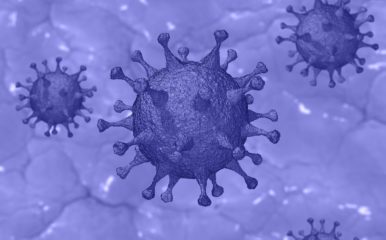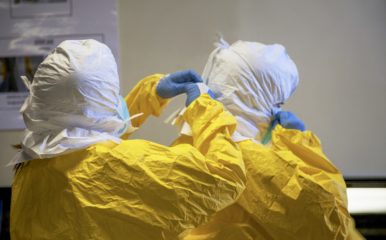
Hub disease modellers’ findings reinforce urgent need for reliable immunity read-outs
Published on 25/03/2020

Leo2014/Pixabay
New results from Poultry Hub disease modellers demonstrate one of the main difficulties in estimating the current advance of COVID-19 in the UK.
The findings point towards the urgent need to provide reliable read-outs of protective immunity.
In a series of theoretical exercises, the Evolutionary Ecology of Infectious Disease group at University of Oxford shows that a wide range of the UK’s population could have already been infected with COVID-19, either developing very mild or no symptoms at all.
The uncertainty on exactly how many would have been exposed comes mainly from the fact that scientists are still unable to pinpoint at least one of two critical variables of this epidemic: 1) the actual size of the risk group that develops severe disease due to infection with the virus, and 2) how many people have already been exposed and recovered from the virus.
While the first variable is critical for preparedness and effective control strategies, it is also unlikely to be quantifiable during the epidemic. However, the second variable is within reach, as new technologies are being put forward to be able to test for past infection, e.g. a test for antibodies.
The findings can be seen to be at odds with those from scientists at Imperial College London which are being used to guide UK Government policy in the crisis. The Imperial College modelling found that unless the spread of infection was interrupted the country’s National Health Service could become quickly overloaded with critically ill patients. Based upon this, the UK Government abandoned its unofficial ‘herd immunity strategy’ which was to allow the controlled spread of infection. The current ‘lockdown’ is the result.
Dr José Lourenço, of the Evolutionary Ecology of Infectious Disease group, said:
Our study is based on fundamental epidemiological theory, informed by official death reports in the UK and Italy. The outputs presented are not forecasts of the current situation in either of the countries, but instead offer critical examples on how the real epidemic size may have already progressed (unknown) depending on the real (unknown) number of people at risk.
To confirm any of the presented findings, mass antibody testing of the population needs to take place and the Oxford team is now working to achieve this in the following weeks. Dr Lourenço added:
There is now a need to raise awareness about the urgent need for investment in technologies such as virus (or viral pseudotype) neutralisation assays and other robust assays which provide reliable read-outs of protective immunity.
In the context of the Poultry Hub, the Oxford team, led by Professor Sunetra Gupta, is developing theoretical models to study the spread and evolution of antimicrobial resistance and emergence of Influenza A lineages in Southeast Asia.


